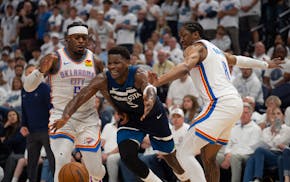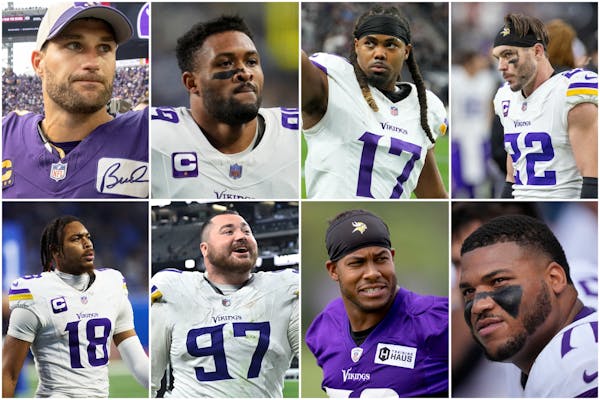My introduction to the world of the NFL, and NFL media, arrived in 1989. I was working for the Dallas Morning News covering high school sports when news broke that the Cowboys were going to fire the legendary Tom Landry.
Sources had told our NFL writers that new Cowboys owner Jerry Jones would be having dinner with Jimmy Johnson, and that Johnson could be named coach as early as the next day.
Our staff mobilized. Each of us staked out a high-end restaurant in the Dallas area. Ivan Maisel, our great college football writer, found Jones and Johnson mid-margarita. The next morning, Cowboys fans, many of whom couldn't imagine Landry being fired, and certainly couldn't imagine Landry being fired by a mouthy Arkansan who had once failed to make money running a chain of pizza parlors, awoke to a front-page photo of Jones and Johnson smiling for our cameras at their dinner table.
Jones' popularity couldn't have been lower at that moment, and Johnson was tainted by association. Cowboys fans loved Landry and were suspicious of change, even change that would bring in a coach who won a national title.
In light of today's NFL new cycles, those sentiments feel hopelessly old-fashioned.
Landry had coached the Cowboys for 29 seasons. He had not won a Super Bowl in 12 seasons. He hadn't taken a team to the Super Bowl in 11 seasons. The Cowboys were on a run of three straight losing seasons, and finished 3-13 in 1998.
Minnesotans loved Bud Grant for all of the right reasons. In Grant's last seven seasons as Vikings coach, he won exactly one playoff game and reached the conference title game zero times.
Can you imagine any coach surviving such performances today?
We are living through perhaps the most tumultuous coaching turnover cycle in football history.
The Patriots' Robert Kraft fired Bill Belichick after a terrible season. One terrible season. Three seasons ago, Belichick won 10 games with a rookie quarterback. Two seasons ago, he went 8-9 despite quarterback problems.
This was Belichick's first bad season since his first in New England, in 2000, and he was fired immediately and replaced by one of his assistants, Jerod Mayo, who has no experience as a head coach or coordinator at any level.
Perhaps the most accomplished college football coach in history, Nick Saban, walked away from a lucrative deal at Alabama. Pete Carroll, the rare coach who has won a national title and a Super Bowl, was pushed out in Seattle.
The reigning national champion, Jim Harbaugh of Michigan, is making the interviewing rounds along with Belichick.
Jones took three days to decide not to fire a coach, Mike McCarthy, who has won 12 games in each of the last three seasons and won a Super Bowl in Green Bay.
The Eagles are contemplating firing a coach, Nick Sirianni, who almost won the last Super Bowl and whose team was 10-1 a couple of months ago.
What has changed in the NFL since organizations and fans were content to watch legends slowly degrade their franchises?
Money, media and proof of rapid transformation.
Money: These are no longer mom-and-pop organizations. They are billion-dollar businesses contained in a multi-billion-dollar league. When you pay top dollar for a coach, you are going to want results.
Media: Mass and social media demand results and can intricately detail every bad play, bad call and bad scheme. If a coach makes a mistake, he will not be able to hide it.
Rapid transformation: Modern NFL teams can go from terrible to contention overnight — if they bring in the right coach and quarterback. Remember, the Texans felt hopeless not long ago. Their franchise quarterback, Deshaun Watson, had embarrassed himself and the organization, and they made the correct if painful decision to trade him and start over.
Then they hired DeMeco Ryans and drafted C.J. Stroud, then won 10 games and beat the Browns (Watson's new team) in the playoffs in their first season together.
We could decry the hyperreactive nature of the new NFL, but that would be disingenuous.
The NFL is an entertainment entity, and there is nothing more entertaining in professional sports than a league filled with teams that refuse to accept losing.
Souhan: For Lynx star Napheesa Collier, 'Phee' is just fine
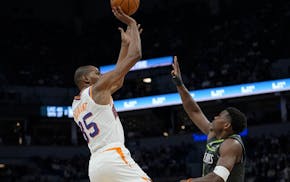
Souhan: Will the Wolves trade for Kevin Durant? Should they?
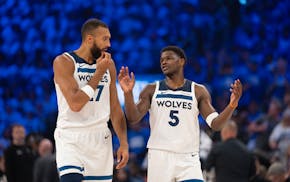
Souhan: If Edwards is a franchise player, he needs to act and play like it
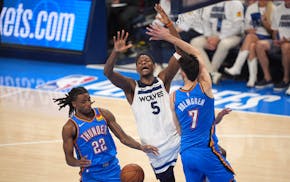
Souhan: Wolves' weak performance in Game 5 invites change, so don't let it shock you
